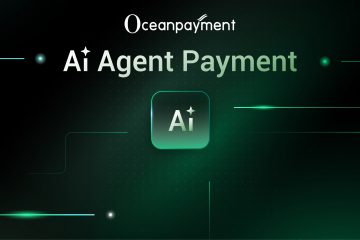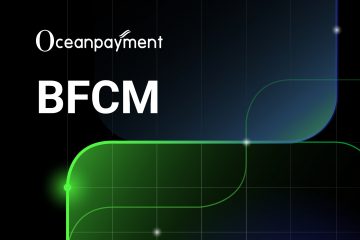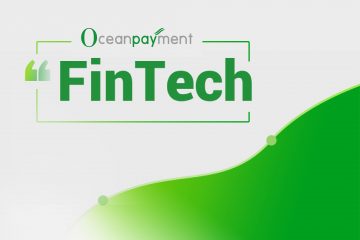Among the multiple best third party payment processors available, Oceanpayment will be suitable for your needs. From customizations to advanced features, understand what every third party payment platforms have to offer.
Payment gateways are widely used to sell products through online platforms and receive payments in a secured manner. third party payment platforms allow the customers to have a safety feature by using credit cards and their other bank-based transactions. The availability of a suitable third party payment platform is essential for most E-Commerce websites. Most of the customers nowadays prefer the best third party payment processors like Google pay and PayPal for hassle-free purchases. Along with that, certain websites also adapt these third party payment platforms to secure their customers from their end.
Who is the best third party payment platform?
As per the recent study conducted during the 2021 third party payment platform analysis, we have a few competitors who have emerged on a global basis. Some of them include Authorize net, Stripe, PayPal, Square, Braintree, and We pay. There are also other best third party payment processors available within the country that vary each year. So when you set out to purchase a suitable third party payment platform, there will be multiple options. Selecting a perfect platform among them requires a lot of patience and research. Before performing the research understand the concepts in detail.
What to look for in a perfect third party payment platform?
When it comes to a perfect third party payment platform, certain features need to be considered. Let us now take a look at them in detail.
Security – The first and foremost important while choosing one of the best third party payment processors is security. Along with the security of data entered by the customer, it is necessary to protect the transactions. The money should be safely deposited in the merchant’s Bank. The third party payment platform should also return the money when there is any transaction cancellation.
Network Speed – Some of the payment gateways third party payment platforms will not work efficiently in slow networks. The speed of the transaction should be almost immediate. So the best third party payment processor has to utilize the available Network and transfer the data along with the money immediately. The third party payment platform should also avoid delayed relay of OTP and other issues.
Access – Along with the above features, the best third party payment processors should also have the ability to offer easy access. When it comes to easy access, it should avoid unnecessary procedures. They should generate the transaction within minutes using a simple pin and security protocol.
Benefits of using a good third party payment platform
By using a top-notch third party payment platform, you can ensure the security of the customers. The merchants can also enjoy certain benefits. Some of the common benefits have been stated below.
● The best third party payment processor can offer a reduced merchant budget with advanced security systems.
● The best third party payment processor will provide a regular report on the transactions every month to the merchants.
● The third party payment platform also offers other extra features like a free trial and easy access. The login and extracting the information from the merchant side should also be easier.
All these benefits will make your experience with the best third party payment processor the best. Certain features might vary from platform to platform and should be customized according to your requirements.
Why choose Oceanpayment?
Oceanpayment is a growing platform that has established itself as one of the best third party payment processors in the country. We have advanced integration services and offer the best third party payment platform for your transactions. The transfers are made secure, and it will attract more customers for the merchants. So avail our services immediately for more advanced technology.
With the development of Internet e-commerce, third-party payment is inseparable. The third-party payment platform is a bridge connecting buyers and sellers in e-commerce. It is very important for e-commerce websites to choose a reassuring third-party payment platform.
How to choose a third-party payment platform for your business?
With the emergence of many third-party payment platforms, sellers do not know how to choose the best third-party payment processor that suits them. Oceanpayment, as a global digital payment service provider, has accumulated experience in the market for many years. For choosing a third-party payment platform, Oceanpayment suggests that you can consider the following aspects:
- Payment security: First, a third-party payment platform must pass PCI DSS LEVEL 1, the highest level of security certification in the global financial industry. It also follows relevant standards and regulations and can be recognized by law, such as ensuring that the legal effects of electronic transactions and signatures can be accepted by regulatory agencies and the judiciary. Safe and reliable technical solutions can avoid business risks. For massive consumer data, it has anti-counterfeiting, anti-tampering, anti-theft, anti-abuse capabilities, and so on.
- Cost: When an enterprise starts to use third-party payment, it needs to pay a certain fee to the third-party payment service provider. This fee is usually divided into two parts: one is the access fee, which is generally fixed. The second is the handling fee. The handling fee is deducted by a certain percentage according to the transaction amount, which is deducted by a third-party payment service provider in each settlement cycle. The handling fee rate charged by some service providers to different industries will also be different from each other. The common fees of third-party payment platforms include service fees, that is, third-party payment platforms solve different payment solutions for customers. In addition to providing payment services, there are also a series of fees charged by other value-added services.
- Payment interface: Choosing a formal third-party payment platform can be considered from the following aspects. The interface is simple (convenient for users to pay), stable (not to drop orders), and settlement is fast (merchants can withdraw money quickly). It should be noted that a good third-party payment platform has a convenient payment process for users and is not easy to drop orders. It can cover mainstream payment products that support multiple countries around the world. The survey shows that many customers pay on the payment page, which is in line with the user experience. It will make it easier for merchants to make orders.
- Settlement cycle: It is necessary to pay attention to the settlement method and settlement cycle. Good settlement method and fast settlement time can enable the rapid circulation of funds, avoid the disconnection of funds, bring great competitive advantages to individuals and merchants, and reduce operational pressure.
- Payment method: For multinational or multinational online e-commerce companies, it is important that the payment method conforms to the local payment and consumption preferences. Different countries have different payment types. The general online payment methods include: credit cards, online banking, transfer payment, account payment, convenience store payment, cash payment, etc., choosing a professional third-party payment company to obtain professional solutions will not only help merchants meet more consumers’ payment habits, but also improve consumer’s satisfaction.
- After-sales service: Whether it is complete and timely, the business scope of each third-party payment platform has its own strengths. In addition to the strength of the product, it should also pay attention to the service ability. For some payment companies, if the merchant encounters any urgent problems after accessing, if the payment company’s ability to solve problems is weak or the response time is very slow, such as replying through traditional emails, it will greatly affect the merchant’s work process, so choose the first In the case of a three-party payment platform, in addition to professional qualifications, it is also necessary to pay attention to whether there is a mechanism for quickly solving problems. To identify, choose a good reputation, good product, and good after-sales service. If there is a problem that needs to be communicated, you can immediately find a payment company that communicates with the corresponding person in a variety of ways, such as telephone, communication software and other efficient feedback methods.


Third-party payment processing features
It can be seen that the third-party payment has significant characteristics:
First, the third-party payment platform provides a series of application interface programs, which integrates multiple bank card payment methods into one interface, and is responsible for the docking with the bank in transaction settlement. Online shopping is faster and more convenient. Consumers and merchants do not need to open different accounts in different banks, which can help consumers reduce online shopping costs and help merchants reduce operating costs; at the same time, it can also help banks save gateway development costs and bring certain potential to banks profit.
Second, compared to payment protocols such as SSL and SET, the use of third-party payment platforms for payment operations is simpler and easier to accept. SSL is a widely used security protocol, in which only the identity of the merchant needs to be verified. SET protocol is a relatively mature technology based on credit card payment system developed. However, in SET, the identities of all parties need to be authenticated by CA. The procedures are complicated, the procedures are numerous, the speed is slow, and the implementation cost is high. With a third-party payment platform, negotiations between merchants and customers are completed by a third party, making online transactions easier.
Third, the third-party payment platform itself is attached to a large-scale portal website and relies on the credit of the bank with which it cooperates. Therefore, the third-party payment platform can better break through the credit problems in online transactions, which is conducive to the promotion of e-commerce. Rapid development.
In a transaction through a third-party platform, after the buyer purchases the goods, he uses the account provided by the third-party platform to pay for the goods, and the other party notifies the seller of the arrival of the payment and delivers the goods; after the buyer inspects the goods, he can notify the seller of payment. The emergence of third-party payment platforms, theoretically, completely eliminates fraud in electronic transactions, which is also determined by its following characteristics.
Third-party payment processing
In the third-party payment transaction process, the payment mode prevents the merchant from seeing the customer’s credit card information, and at the same time prevents the credit card information from being stolen due to multiple public transmissions of the credit card information on the network.
Take B2C transactions as an example:
In the first step, the customer make purchases on the e-commerce website, and finally decides to purchase, and the buyers and sellers reach a transaction intention on the Internet.
In the second step, the customer chooses to use a third party as a transaction intermediary, and the customer uses a credit card to transfer the payment to the third-party account;
In the third step, the third-party payment platform notifies the merchant that the customer has paid, and requires the merchant to deliver the goods or services within the specified time;
The fourth step, the merchant will deliver the goods according to the order after receiving the notification;
The fifth step, the customer will notify the third party after receiving the goods and verifying;
In the sixth step, the third party transfers the payment from its account to the merchant’s account, and the transaction is completed.












Comments are closed.